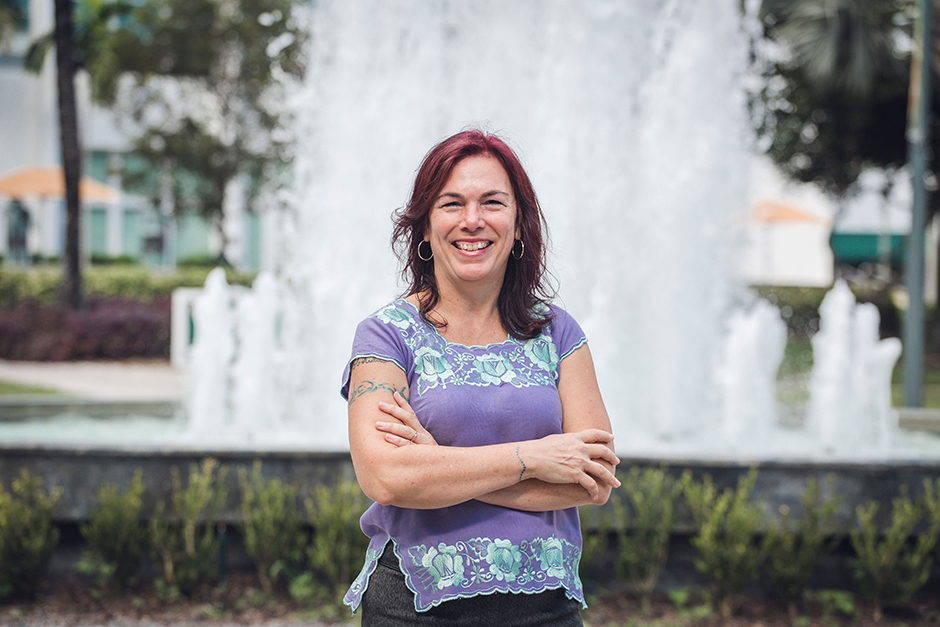Traci Ardren, a professor in the Department of Anthropology, has been awarded a residential fellowship at the Dumbarton Oaks Research Library and Collection in Washington, D.C. Administered by the trustees for Harvard University, Dumbarton Oaks supports research and learning in Byzantine, Garden
She will spend the spring semester researching a new monograph on Classic Maya perceptions of nature and “soft” cloth, paper, and basketry technologies that relied on the plant knowledge of older women. Her research is entitled, “Go in Pairs, Intertwined: Soft Technologies and the Role of Plants in Classic Maya Identity.”
“I am very proud to hold this fellowship because Pre-Columbian studies
An anthropological archaeologist with interests in New World prehistoric cultures, Ardren focuses her research on issues of identity and other forms of symbolic representation in the archaeological record, especially the ways in which differences are explained through gender. She currently directs the Matecumbe Chiefdom Project, which looks at the political organization and environmental adaptation of the Pre-Columbian occupants of the Florida Keys.
She is also co-director of the Proyecto de Interacción Política del Centro de Yucatán, at the Classic Maya site of Yaxuna in the Mexican state of Yucatán, where she is investigating the ways ancient road systems enabled the flow of information and ideas.
As consulting curator for Mesoamerican art, Ardren has curated many exhibits at the Lowe, including “The Jaguar’s Spots: Ancient Mesoamerican Art from the Lowe Art Museum” in 2010, “Flowers for the Earth Lord: Guatemalan Textiles from the Permanent Collection” in 2006, and most recently, “Kay Pacha: Reciprocity with the Natural World in the Ancient Art of the Andes” in 2016.
“Dumbarton Oaks has access to all the materials in the Harvard University system, which includes hundreds of years of unpublished papers by some of the most important scholars in the history of Pre-Columbian studies, so I look forward to digging into those,” said Ardren. “There are also ancient objects in their collection that I can’t wait to examine in person. Finally, I will be part of a small group of scholars who meet over lunch to discuss their research progress. As someone who works largely alone here at UM, I am looking forward to those conversations!"

